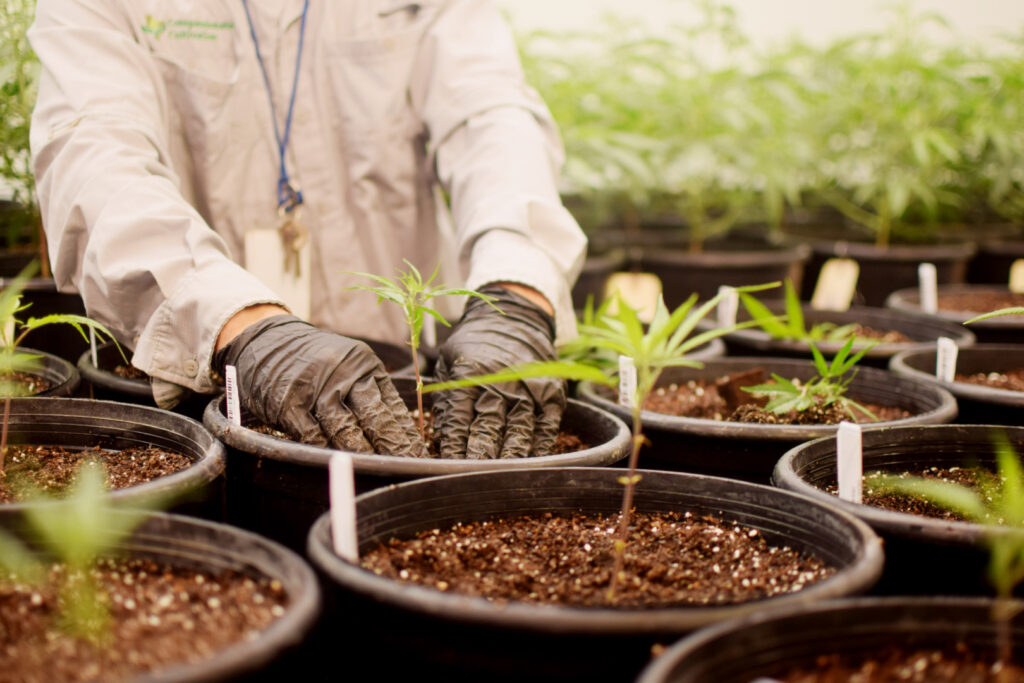Zinger Key Points
- Despite these significant hurdles, Richardson emphasized that Texas Original has great potential in the Texas market.
- Texas has 30 million people and only three medical cannabis licenses.
- Get access to your new suite of high-powered trading tools, including real-time stock ratings, insider trades, and government trading signals.
CEO Nico Richardson sat down with Benzinga Cannabis to discuss Texas's regulatory landscape and its untapped growth potential.
In a state where cannabis regulations are among the strictest in the country, Texas Original, one of the few medical cannabis providers is navigating a highly controlled market while facing competition from a booming, unregulated hemp industry.
CEO Nico Richardson sat down with Benzinga Cannabis to discuss the company's challenges, the state's regulatory landscape and the untapped growth potential Texas represents.
- Get Benzinga's exclusive analysis and the top news about the cannabis industry and markets daily in your inbox for free. Subscribe to our newsletter here. You can’t afford to miss out if you're serious about the business.
Texas: ‘The Most Highly Regulated Market In The Country'
Texas has one of the most regulated cannabis markets in the U.S., which presents significant hurdles for operators like Texas Original. “This is the most highly regulated market in the country,” said Richardson.

Nico Richardson – CEO Texas Original – Courtesy Photo.
In Texas medical cannabis providers can’t offer ignitable flowers regardless of the THC percentage.
“We are confined to producing tinctures and edibles, but 80-90% of medical sales in other markets are inhalables, which are crucial for patients with conditions that require rapid relief,” said Richardson.
Adding to the challenge is Texas’ requirement that all operations—cultivation, manufacturing, testing, and distribution—must happen under one roof. "We operate one facility in Austin, and every day, we transport products to pickup locations in cities like Houston and Dallas. At the end of the day, anything unsold has to be driven back to Austin," he explained, emphasizing the logistical hurdles of operating in such a large state under tight regulations.
Why? Massive Potential
Despite these hurdles, Richardson emphasized that Texas Original saw great potential in the market. "It wasn't a mess when we entered in 2017," Richardson said. "The regulations were tight, but so were Canada's in the early days. The natural progression of medical markets is that they start highly restrictive, but as more people are helped and diversion isn't an issue, the markets open up over time."
Richardson highlighted Texas' growth potential. "Texas has 30 million people and only three medical cannabis licenses. Look at Florida: they have 20 million people and 28 licenses, generating about $7 billion annually. The opportunity here is massive, and we believe the regulations will eventually ease."
Read Also: Why Pennsylvania’s GOP Districts Are Embracing Weed: The Cannabis Revolution You Didn’t See Coming
Regulators' Fears
Texas regulators' fears of cannabis diversion—the illegal sale of marijuana products—have led to tight controls over medical products. "The state police regulate our industry, and their biggest concern when the program started was a diversion into the illegal market," Richardson told Benzinga.
As a result, the company must keep all inventory under one roof and is subject to rigorous oversight. "We are under constant Police supervision, and we test every batch that leaves our facility."

Texas Original – Courtesy Photo
Despite these constraints, Texas Original has managed to stay competitive by driving operational efficiency. "We’ve been able to reduce prices over the last five years by focusing on automation, improving our cultivation processes, and streamlining manufacturing," Richardson said. The company is continually refining its operations to serve a growing patient base across Texas.
Wild West Of Hemp
While medical cannabis is under heavy regulation, the hemp-derived psychoactive product market in Texas operates with minimal oversight. According to Richardson, hemp products, often far more potent than what Texas Original is allowed to offer, are sold in gas stations and convenience stores. “When our drivers travel to Houston or El Paso, they pass hundreds of hemp shops selling THCA flower with 30% THC or Delta-8 vape pens with 80-90% THC,” Richardson noted, pointing to the Kafkaesque situation.
The Texas Department of Health and Human Services (HHS) oversees hemp products, while the Texas Department of Public Safety (DPS) regulates medical marijuana.
"We are regulated by the Police. The regulatory disparity is striking. Medical cannabis is treated like a public safety threat, while the hemp industry operates with virtually no oversight. Hemp products don't undergo the same testing. When we've tested them, they've been riddled with pesticides, microbial contamination, and even mold," he explained.
Read Also: Texas Hemp Industry Fights Delta-8 THC Ban As Supreme Court Decision Looms
Suspensions On The Rise
Richardson pointed out a dramatic increase in school-related suspensions due to the use of unregulated hemp products. "Since 2021, school-related suspensions linked to drug incidents have increased by 2.5 times, and it's because of hemp. You can see a hemp shop just 75 feet away from a high school."
He further highlighted the lack of age restrictions on hemp products in Texas. “There are no laws preventing teenagers from buying these products, and hemp shops are everywhere. They're selling to high schoolers, and it’s become a serious issue.”
Legislative Changes Looming
The regulatory environment for medical marijuana in Texas is starkly different from the free-for-all of hemp. However, change may be on the horizon. Lieutenant Governor Dan Patrick has announced plans to push for a ban on hemp-derived Delta-9 and Delta-8 products in the 2025 legislative session. "School districts are up in arms, and law enforcement is finally stepping in," Richardson said.
"Texas has 30 million people, and there are only three medical cannabis licenses. Meanwhile, hemp shops are operating unchecked," Richardson said, adding that he’s hopeful that the upcoming legislative session will bring relief to the medical cannabis market while reining in the unregulated hemp industry
“A lot of people don't realize the risks associated with unregulated hemp products. It's up to us to educate through media campaigns and by engaging with patients directly,” Richardson said. "People need to know that what's being sold in gas stations and convenience stores is not being tested or regulated. It's dangerous, and it's a growing problem."
Read Next: Major Cannabis Merger Approved In New York: Can Weed Stock Investors Take Advantage?
© 2025 Benzinga.com. Benzinga does not provide investment advice. All rights reserved.
Trade confidently with insights and alerts from analyst ratings, free reports and breaking news that affects the stocks you care about.
Cannabis is evolving – don’t get left behind!
Curious about what’s next for the industry and how to leverage California’s unique market?
Join top executives, policymakers, and investors at the Benzinga Cannabis Market Spotlight in Anaheim, CA, at the House of Blues on November 12. Dive deep into the latest strategies, investment trends, and brand insights that are shaping the future of cannabis!
Get your tickets now to secure your spot and avoid last-minute price hikes.